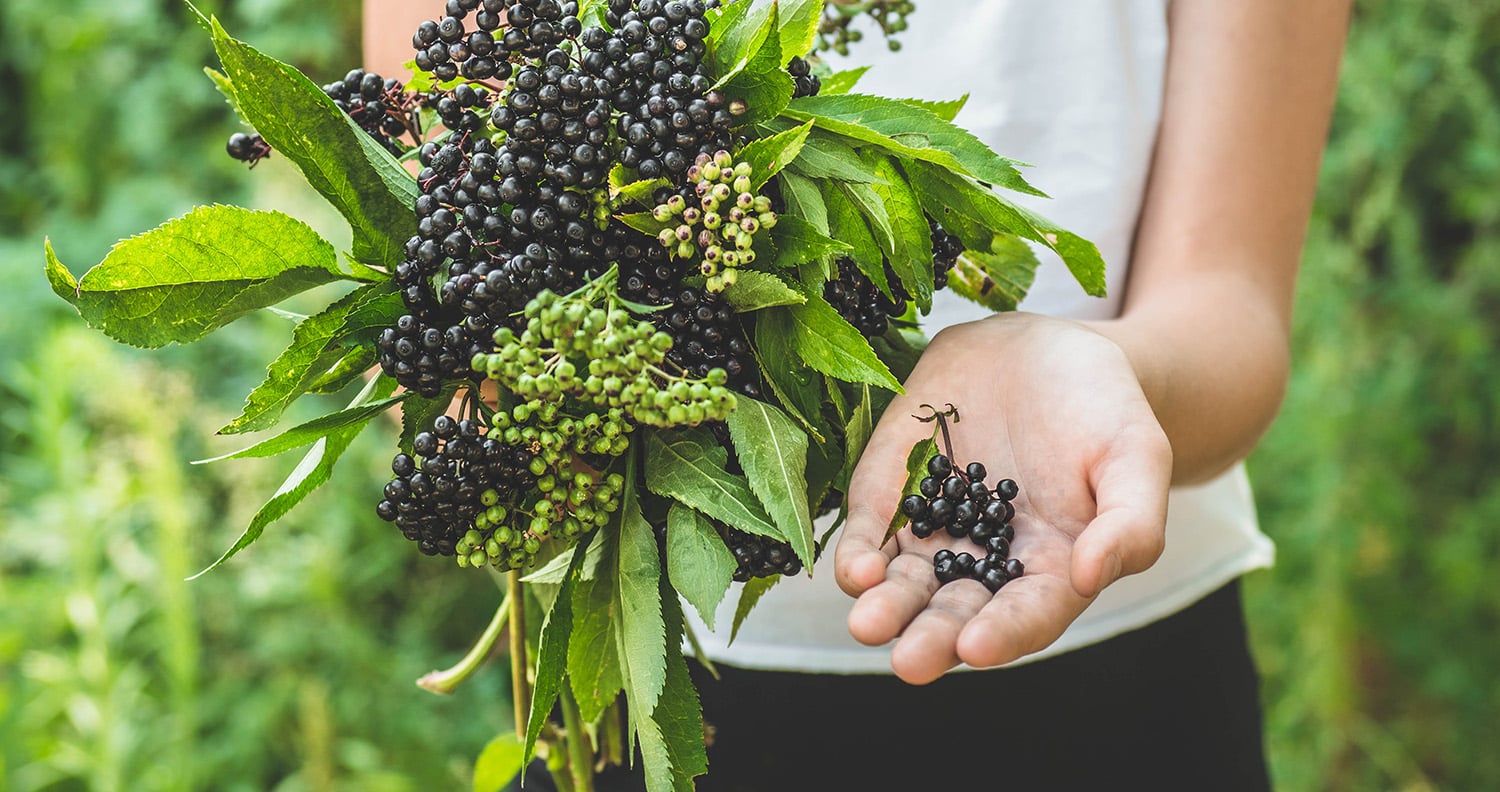
Elder (Sambucus Nigra) is a bushy tree/ shrub that is commonly used to support the immune system and respiratory health. Elderberries and elderflowers come from the same plant but grow at different times of the year. Elderflowers are cream-coloured flowers that grow in clusters during late spring/ early summer, whereas elderberries are clusters of small dark purple berries that grow in mid-summer/ early autumn. Herbalists use the berries and flowers for coughs, colds/ flu, hay fever and sinusitis due to their medicinal properties. Elder is also helpful for arthritic conditions where there is pain and inflammation, digestive issues and heart health.
Elder Health Benefits
- Naturally rich in vitamin C and antioxidants, elderberries are often made into cough syrups and added to immune formulas as they boost the immune system and exert a soothing action on the throat and lungs.
- Exerts a diaphoretic action (promotes sweating) by stimulating circulation and encouraging the capillaries (small blood vessels) to open up to move excess heat out of the body. Elderberries are particularly helpful for fevers and inflammation, especially in the upper respiratory tract.
- Strengthens the immune system and has shown to reduce the severity and length of colds and flu by increasing white blood cells that assist the body in fighting infections.
- Provides some protection against UV radiation. Elderberry is said to contain an SPF (sun protection factor) of 9.88.
- Reduce fluid retention and swelling due to its diuretic action. Elderberry helps to eliminate excess fluid from the body through the kidneys.
- Promotes healthy bowel motions and relieves constipation owing to its mild laxative action and high fibre content.

How to use Elderflowers
As a tea or tincture
Fresh or dried elderflowers can be used to make a tea. Traditionally, herbalists suggest adding one teaspoon of fresh or dried flowers to a tea pot with boiling water. Allow the flowers to infuse for 5 – 10 minutes, then strain and serve.
For a stronger, therapeutic dose, you can use elderflower a liquid tincture. Consult with a qualified herbalist who can recommend the correct dosage.
Elderflower Cordial
- Add 570ml of water to a pan with 10 heads of elderflowers, where the flowers have been snipped off at the stems. Squeeze the zest and juice of one lemon into the pan.
- Bring to boil and simmer gently for 10 minutes. Strain the flowers and then add 500g of brown sugar. Return to a gentle simmer until the sugar has dissolved.
- Turn up the heat and boil it gently until it begins to thicken. Allow it to cool before drinking.
How to use Elderberries

Elderberry Syrup
- Remove 10 heads of ripe elderberries from the stem with a fork. Place the berries in a pan and add 1140ml of water.
- Add 2cm of finely diced ginger, 1 stick of cinnamon broken, 2 whole star anise (roughly ground) and the zest and juice of 1 whole lemon.
- Gently simmer on the hob for half an hour. Strain out herbs and spices.
- Add 1 kg of unrefined brown sugar and gently heat for 10 minutes until the sugar has completely dissolved.
- Bring to boil and simmer, stirring regularly, until the liquid has thickened.
- Pour into clean bottles with lids and labels.
Notes/ Additional Information
Dried herbs can be purchased from a reputable herb supplier online. Buy organic where possible.
References:
Hoffman, D. (2003). Medical Herbalism English, A. (2019). Wild Medicine
Author
Costas Papantoniou – Herbalist, ANP AMH


